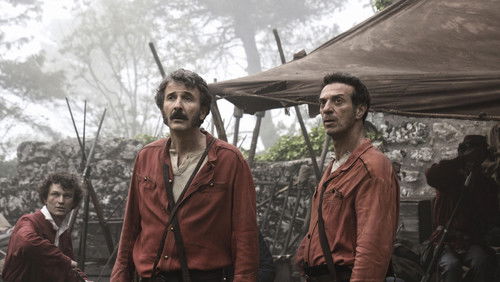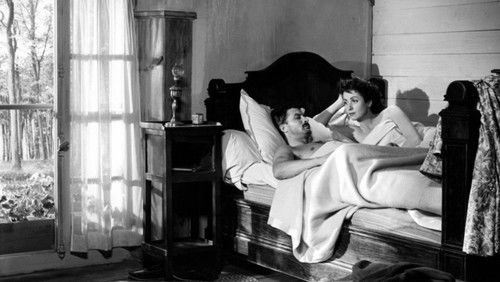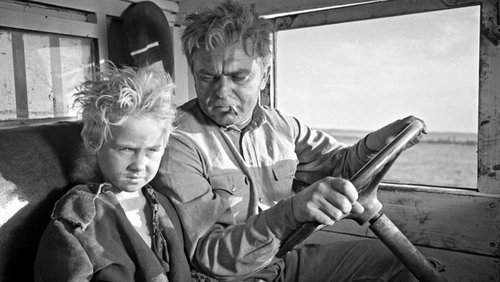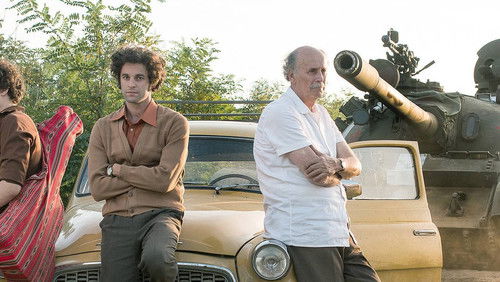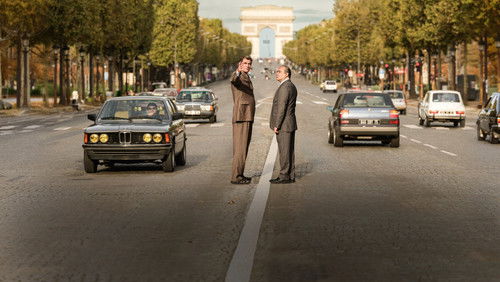Wenn Männer zerbrechen (1957)
46KWenn Männer zerbrechen: Directed by Karl Malden. With Richard Widmark, Richard Basehart, Dolores Michaels, June Lockhart. During the Korean War former prisoner of war, Major Harry Cargill admits to having collaborated with the enemy but military investigator Colonel William Edwards wants the details.
“The post-war era brought a new-fangled maturity to Hollywood – largely by way of talent coming in from the rival fields of theater and television (and expressed particularly in intense social dramas, often with a dash of psychology) – which considerably invigorated the style of Hollywood film-making in general and even helped towards achieving a more liberal censorship.u003cbr/u003eu003cbr/u003eThe film under review actually bears an affinity to four of the very finest efforts made during this era: Elia Kazan’s ON THE WATERFRONT (1954) – in its depiction of revenge within a close-knit outfit upon a stool pigeon in their midst (which had featured TIME LIMIT director Malden as an actor and Martin Balsam, who also appears here, in a bit part); Stanley Kubrick’s PATHS OF GLORY (1957) – in which army attorney Kirk Douglas also faces opposition (for his meticulous defence) from his superior officers who want to escape personal embarrassment by hastily doing away with the case in question; Sidney Lumet’s TWELVE ANGRY MEN (1957; again with Balsam) – similarly dealing with an investigation packed with twists, as well as not technically being a courtroomer; and John Frankenheimer’s THE MANCHURIAN CANDIDATE (1962) – likewise set during the Korean War and involving brainwashing (plus also featuring Khigh Deigh).u003cbr/u003eu003cbr/u003eOf course, it’s not quite on the same level of those milestone titles but definitely emerges as an underrated little film – its very sensitive nature (presenting all sides of the equation i.e. duty to rank and country-vs.-loyalty to, and consideration for, one’s fellow man but then leaving the audience to make up its own mind) possibly hindered any chance at Oscar glory, which would have been entirely deserving…or, perhaps, it was simply because there were already two courtroom dramas commanding attention at that year’s ceremony (the afore-mentioned TWELVE ANGRY MEN and Billy Wilder’s equally brilliant WITNESS FOR THE PROSECUTION) – though, ironically, both remained empty-handed after all! u003cbr/u003eu003cbr/u003eMalden’s sole directing effort is impressive (though, again, not up to, say, Charles Laughton’s THE NIGHT OF THE HUNTER [1955]) and one that gains excellent performances from practically the entire cast. Richard Widmark – a Hollywood star who wasn’t afraid to appear in meaningful films – personally co-produced this one (while others in similar vein he was featured in were NO WAY OUT [1950], JUDGMENT AT NUREMBERG [1961], CHEYENNE AUTUMN [1964] and THE BEDFORD INCIDENT [1965]). Richard Basehart is typically anxious (and compelling) as the soldier accused of treason; he, at least, was awarded with a BAFTA nomination for his work here. Pretty Dolores Michaels is very engaging as Widmark’s sympathetic aide; the only other significant female role, turning up in just one scene, is played by June Lockhart: knowing her chiefly from SHE-WOLF OF London (1946), I was surprised to see her in such a demanding part (at one point, frankly confessing to Widmark her marital problems with Basehart) – but she fills it admirably. Martin Balsam’s character, as Widmark’s well-meaning but more often intrusive colleague, provides the sole concession to humor here – and, consequently, is entirely welcome for it. The film’s compactness, based as it is on a stage play, necessitates that it focuses on just two of the testimonies given by the sixteen soldiers involved in the case being tried – the other, apart from Basehart himself, offers a meaty early role for Rip Torn (which, of course, heralds an eventual revelation concerning his particular character). Carl Benton Reid appears as Widmark’s superior and close friend, a by-the-book military officer of the old school whose integrity is shattered by the end of the film in view of his own son’s unforeseen behavior while in captivity.u003cbr/u003eu003cbr/u003eA gripping, thought-provoking and emotionally-draining experience (in spite of the horrid quality of the VHS version I watched – copied from Cable TV which, at the time, was suffering from bad reception!), I can’t figure out what’s holding this from getting a decent DVD release: hopefully, Widmark’s recent passing will start the ball rolling in this regard. Ultimately, I have to admit that my response to TIME LIMIT was so strong because it may have been influenced by my own current personal situation: notoriety following the violent death of a relative in the course of some shady activity – and which goes hand in hand with the film’s assertion that a man’s whole life, irrespective of how it was spent, will be judged by people who can’t know the whole story on the strength of that single reckless and deplorable act…”

